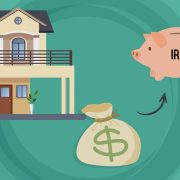Investors help prop up Bay Area housing market
Real estate investors have become a potent force in a moribund housing market, accounting for more than a fifth of transactions in the Bay Area over the past 12 months, according to real estate data.
Despite record low interest rates, many consumers simply don’t have enough confidence in their economic outlook to buy houses. Investors keep some properties – especially ones that need extensive work – from languishing unsold for months and have kept prices from nose-diving further, real estate experts say.
“The market would be quite a bit sicker were it not for investors snapping up a lot of the properties,” said Andrew LePage, analyst at DataQuick real estate service. “They account for a meaningful portion of the demand. To the extent to which there’s at least a temporary floor under this market, they’ve helped to build it.”
In addition to homes sold through the multiple listing service, an increasingly large share of properties at courthouse-steps auctions – the final stage of foreclosure – are being bought by investors. Some 5,243 properties were purchased by nonbank entities in the 12 months ended in September, according to ForeclosureRadar.com.
Almost half of the Bay Area homes purchased on the open market are distressed – either bank-owned foreclosures or short sales being sold for less than the mortgage. Often these properties suffer from deferred maintenance, making them challenging for an owner-occupant.
Investors play a valuable role in buying and rehabbing such properties and then re-selling or renting them out, said Jeff Weissman, a Realtor with Highland Partners/BHG in Oakland. “They clear out inventory and then bring it back on the market in move-in condition, thus improving neighborhoods and giving opportunities to first-time home buyers,” he said.
Not everyone is enthusiastic about investors. Other home buyers complain that they get muscled out by deep-pocketed investors who can pay all cash, LePage said. Sellers prefer cash offers because they’re quick, clean and guaranteed to close. Community groups worry about investors turning into slum landlords as they manage fleets of rentals.
Some of investors’ bad rap stemmed from boom-time flippers, who capitalized on a rapidly rising market.
“There is a huge difference between speculation and investing,” said John Robin, a Realtor with BHG/Mason-McDuffie in Berkeley. “Until 2009, most (non-homeowners) buying real estate here in the Bay Area were speculating on appreciation. What an investor does is look at what a property will cost now to purchase and operate, and look at the return every month. If one day they can sell it and make a profit, that’s even better.”
He sees more investors becoming landlords although there are still plenty of flippers.
With prices continuing to soften, more “ordinary people” are getting involved in real estate investing, since the barriers to entry are lower, Robin said.
“The biggest growth area is first-time, small investors,” he said. “These are people who may have cashed out (other investments) that they want to put into real estate. Some people use self-directed IRA money to buy real estate. Sometimes it’s families who pool their money together or individuals who have jobs and do this to supplement their income.”
The Obama Administration implicitly recognized investors’ value in the marketplace this summer when it called for proposals from investors and others on how to buy, rehab and rent out the legions of foreclosed properties owned by Freddie Mac and Fannie Mae.
But investors are not a single monolithic entity. They come in all types, from the mom and pop who buy a couple of rentals to fund their retirement, to the professionals who deal in dozens of homes a year as a full-time occupation. Here are profiles of three types of real estate investors currently looking in the Bay Area.
Professional
Pete McDonough of Pleasanton had a secure, well-paying job in sales for a technology company. But three years ago when he realized how many bargain homes were for sale in the Bay Area, he switched to full-time real estate investing.
“In a horrible job market, I quit a good job,” he said. “I’ve considerably exceeded my previous salary and I haven’t looked back.”
He had dabbled in buying rental properties for some time, but not in California, where high prices meant it was impossible to rent them out for enough cash flow. But the real estate downturn made the Golden State much more affordable.
He partnered with Andrew Wilson, who had a background in kitchen and bathroom design, and David Rosen, a real estate broker. The three put up cash and also attracted some investors. Today they operate a $5 million fund.
Most of their efforts go to buying, fixing and flipping, but they also maintain a small stable of rentals, primarily in Hayward. They’ve flipped about 100 properties in the past three years. Their main territory is Alameda County from Hayward to Livermore, and their main sources of properties are the foreclosure auctions on courthouse steps, although they buy some properties from individuals as probate sales, short sales and bank-owned foreclosures on the open market.
They look for houses that need work. Potential owner-occupants often are leery of such properties because of the Pandora’s box aspect of not knowing what they’re getting into – plus financing constraints on houses that aren’t habitable. “We do all the work that’s needed, from plumbing and electrical checks to dual-pane windows,” he said. “We make it turnkey” for the next buyer.
Right now they’re rehabbing a two-bedroom, one-bathroom home in Oakland’s South Laurel district. They bought it for $210,000 on the open market and plan to put nearly $100,000 into it. “We’ll go to market at $399,000 and hope to get to the low $400,000s,” he said.
The place was a mess. “We’ll do everything from roof to electrical,” he said. “Every piece of drywall and paint and stucco.”
The good news: “The house has a lot of character and it’s in a great neighborhood. It should be a jewel when we’re done with it.”
The extensive rehab means it will take two to three months to get the property on the market – a little longer than they usually aim for.
“Our goal is to make a 20 percent return in 90 days,” he said.
Longer term, McDonough, 42, wants to retire early and get into philanthropy. His cause: Teaching financial management to disadvantaged youth.
“I grew up in Hayward and don’t feel as if there are a lot of places where kids can go to learn the basics of managing their money,” he said.
Owner-landlord
David Gutierrez, 42, and Heather Glowe, 37, moved to Oakland from Chicago after the real estate downturn.
“We had come out for vacation a few times and always thought it was too expensive for us to buy out here,” said Gutierrez, who works in IT services in the financial sector. “But once we got here, we realized the way the market is hit so hard, it made it more reasonable for us to look into.”
Rather than starting with a single-family home, they’re hoping the depressed prices will allow them to invest in a multiunit building, so they can live in one unit and use rents from the other units to offset their mortgage payments.
“This offers us a great way to get in on the ground floor in an investment,” he said. “We can greatly leverage our money going into a multiunit if we live there ourselves for some time.”
The couple’s ideal would be a four-unit building for $750,000 or less. They’re looking in Berkeley and Oakland.
“For us it makes sense because we’re a childless couple and we don’t have to worry about a lot of space or need a back yard,” said Glowe, who works in marketing. “Our goal is to be able to retire in our late 50s or early 60s.”
“If we’re able to enter the market at this point, we lock in a low (sales) price,” Gutierrez said. “We can live at a great discount (by applying rents to the mortgage) and eventually start looking at additional investments or a single-family home.”
They’ve been looking for six months and have been outbid a couple of times but are determined to find a place before their lease is up in March.
Fix-it guys
Christopher Angelov, 31, and his brother Asen, 29, run their own house-painting company. Their skills and their crew have come in handy in the past couple of years as they’ve dabbled in real estate investing on the side.
The two, who moved to California from their native Bulgaria in 2007, were motivated after attending a seminar on real estate investing.
Their goal is to do real estate investing full time, but for now they’re keeping their painting business going, because investing is capital-intensive.
In the past three years, they bought and fixed up two homes in Richmond that they rent out for positive cash flow.
This year they tried out their first flip. They bought a bank-owned foreclosure in Richmond, in a modest residential area just a few blocks from the notorious Iron Triangle.
It needed a fair amount of work but had some good features. The four-bedroom two-bathroom layout would appeal to families and there was a big finished garage.
They paid $103,000 in cash (partially supplied by a third partner). Rehab took seven months – longer than expected as they ran into some serious plumbing issues. They listed it for $170,000 and are now in contract at over list price to a young couple with two children looking to move up from a small house in a worse neighborhood.
“The most important thing is to do the math first,” Christopher Angelov said. “If the math works, go ahead. It doesn’t matter how great a house looks; if the math doesn’t work out, you’re better off not buying.”
Bay Area real estate investors
At least 21 percent of all Bay Area homes sold on the open market over the 12 months that ended in September went to buyers who asked to have their property tax bills sent to a different address, indicating they were investors. Investor sales were highest in counties where prices were lowest and distress sales were more common. At courthouse-steps foreclosure auctions, more than 5,000 properties were purchased by non-bank buyers, who generally are investors.
| County | Open-market homes sold to absentee buyers | % of open-market homes sold to absentee buyers | Courthouse-steps foreclosures sold to third parties |
| Alameda | 3,148 | 22.9% | 1,124 |
| Contra Costa | 4,269 | 24.9 | 1,555 |
| Marin | 513 | 20.5 | 71 |
| Napa | 324 | 16.8 | 112 |
| San Francisco | 1,004 | 16.9 | 151 |
| San Mateo | 1,043 | 21 | 295 |
| Santa Clara | 2,992 | 16.8 | 987 |
| Solano | 1,780 | 27.5 | 626 |
| Sonoma | 1,564 | 21.5 | 322 |
| Bay Area | 16,637 | 21 | 5,243 |
Source: SFGate




